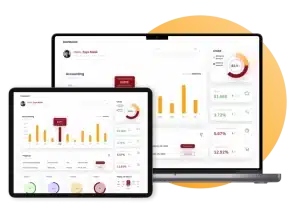Construction ERP software is a specialized system to streamline construction operations. The system integrates processes, tracks resources, and provides real-time insights, ensuring project managers can optimize efficiency and maintain control over their projects.
Managing construction projects requires more than just hard work; it demands smart solutions. With numerous budgets to manage and tight timelines to meet, using the right tools can make all the difference, diba?
What if you could manage every peso and resource with precision and ease? HashMicro Construction ERP provides the tools to elevate your operations, improve productivity, and simplify even the most complex projects.
This article will explore the benefits of construction software and how it can transform your operations. Learn how it can provide the tools your business needs to overcome challenges and succeed in today’s competitive landscape.
Key Takeaways
|
Table of Contents

What is Construction ERP?
Construction ERP software are robust platforms designed to tackle the intricate challenges of construction operations. They act as the backbone for managing vital components such as project management, procurement, and financial oversight.
At the heart of construction ERP is its all-encompassing approach to handling the entire project lifecycle, from bidding to final delivery. By automating and centralizing project-related data, it ensures that progress is accurately tracked and schedules are optimized.
ERP integration significantly cuts down on redundancies and errors commonly seen with disjointed systems. It’s not just about keeping projects on track but also redefining how construction businesses operate, ensuring on-time and within-budget delivery every time.
Why Does a Construction Business Need ERP?
As construction projects grow in size and complexity, the demand for construction management software that can deliver comprehensive oversight and real-time data becomes critical. ERP software meets these demands by offering integrated tools designed for the unique challenges of construction management.
Key Needs Addressed by ERP Systems:
- Streamlined Project Management: ERP software allows real-time monitoring and management of projects, ensuring projects stay on schedule and within budget, providing tools for detailed resource tracking.
- Enhanced Financial Control: Construction estimating software offers robust accounting features that help manage finances across projects, ensuring transparency and control.
- Improved Resource Allocation: ERP systems provide insights into equipment availability and labor skills, helping optimize resource deployment and productivity.
- Procurement Optimization: Automating tasks like purchase order creation and supplier negotiations speeds up operations and reduces errors.
- Compliance and Risk Management: ERP helps ensure compliance with regulatory requirements, and improve construction risk management and project standards.
These ERP capabilities are crucial for construction companies looking to enhance efficiency and accountability in their operations. By streamlining processes from top to bottom, ERP systems not only save time but also contribute to more predictable and successful project outcomes.
How is Construction ERP Different from General ERP?
Construction ERP software meets the needs of the construction industry, unlike general ERP systems, which are broader and not tailored to any specific sector.
These systems handle the unique challenges of construction projects, including managing project lifecycles and providing real-time updates and overseeing construction inventory management.
While general ERP solutions provide a wide array of business management tools suitable for various industries, they may lack the detailed project management and job costing features that are essential in construction.
Construction ERP, on the other hand, integrates all these critical functions into one platform, offering fine-tuned tools to support the allocation demands of the construction world. This specialization makes Construction ERP indispensable for construction companies looking to improve accuracy and enhance project efficiency.
How to Choose an ERP Software for Construction Business
Selecting the right ERP software is crucial for construction businesses looking to enhance operational efficiency and manage projects effectively. It involves understanding specific business needs and assessing various software capabilities.
List of Considerations:
-
- Identify Specific Needs: Understand the unique requirements of your construction business, including project management, procurement, and compliance needs.
- Evaluate Software Scalability: Choose ERP software that can grow with your business, accommodating new projects and expanding operational capabilities.
- Check for Industry-Specific Features: Ensure the ERP solution offers features tailored to the construction industry, such as job costing, project tracking, and resource management.
- Consider User Friendliness: Select software with an intuitive interface that all users across different departments can easily adopt.
- Assess Integration Capabilities: The ERP should seamlessly integrate with existing systems to ensure smooth data transfer and minimize disruption, especially when managing financial processes like construction accounting to maintain accurate and efficient project tracking.
Choosing the right ERP software involves a thorough assessment of your business needs, the scalability of the solution, and its relevance to the construction industry. Opt for a system that enhances operational efficiency and supports your business’s growth trajectory.
Also read: How ERP Can Help in Additive Manufacturing Businesses?
Boost Efficiency Using HashMicro’s Construction ERP
After exploring all these insights, you might wonder which ERP software in philippines to choose. Fret not—we at HashMicro are here to guide you! With our advanced Construction ERP solution, we’re ready to elevate your project management to the next level. HashMicro’s Construction ERP software is tailored to enhance operational efficiencies across the construction industry.
Features of HashMicro’s Software:
- Budget S-Curve Management: This feature allows you to track project costs and progress using S-curve visualizations, comparing planned vs. actual performance. It enhances financial control and improves overall project monitoring.
- In-Depth Budgeting Type and Method: Provides detailed budgeting for materials, assets, petty cash, overhead, and subcontractor costs. It supports multiple methods, like product/type/contract/group budgeting, enabling precise financial management.
- Integrated Project Issue Management: Includes tools to identify, track, and resolve project issues efficiently. By utilizing scheduling software for construction, this ensures projects stay on schedule while adhering to safety and operational standards.
- Automated Project Invoice Based on Progress or Month: Automates invoicing based on project progress or monthly milestones. This feature improves cash flow management and streamlines the client billing process.
HashMicro’s Construction ERP offers a suite of features designed to optimize the management of construction projects from start to finish. By leveraging these features, construction companies can achieve higher productivity, better cost efficiency, and improved project outcomes, positioning themselves strongly in a competitive market.
Read more: Top Construction Inventory Management Software
Conclusion
ERP systems are not just beneficial; they are essential for modern businesses. By integrating critical processes like project management, procurement software for construction, and financial oversight into one unified platform, ERP software such as HashMicro’s Construction ERP enhances efficiency and minimizes operational complexities.
As you consider the transformative impact of ERP on your construction business, remember that the right tools can redefine success in your projects. So, what do you think? Ready to enhance your project management with precision and ease? Try our free demo and see the difference for yourself!
Frequently Asked Questions
-
What is construction ERP software?
Construction ERP software is a platform designed to manage essential construction operations like project management, procurement, and financial tracking. It centralizes data, automates processes, and helps streamline workflows to improve efficiency and project accuracy.
-
What is ERP in civil engineering?
ERP in civil engineering integrates core processes such as planning, project management, and resource allocation. It provides real-time insights to optimize workflows and ensure that projects are delivered on time and within budget.
-
What are the construction modules in ERP?
Construction ERP modules typically include project management, procurement, inventory management, financial management, and human resources. These modules work together to streamline construction operations and improve project oversight.























